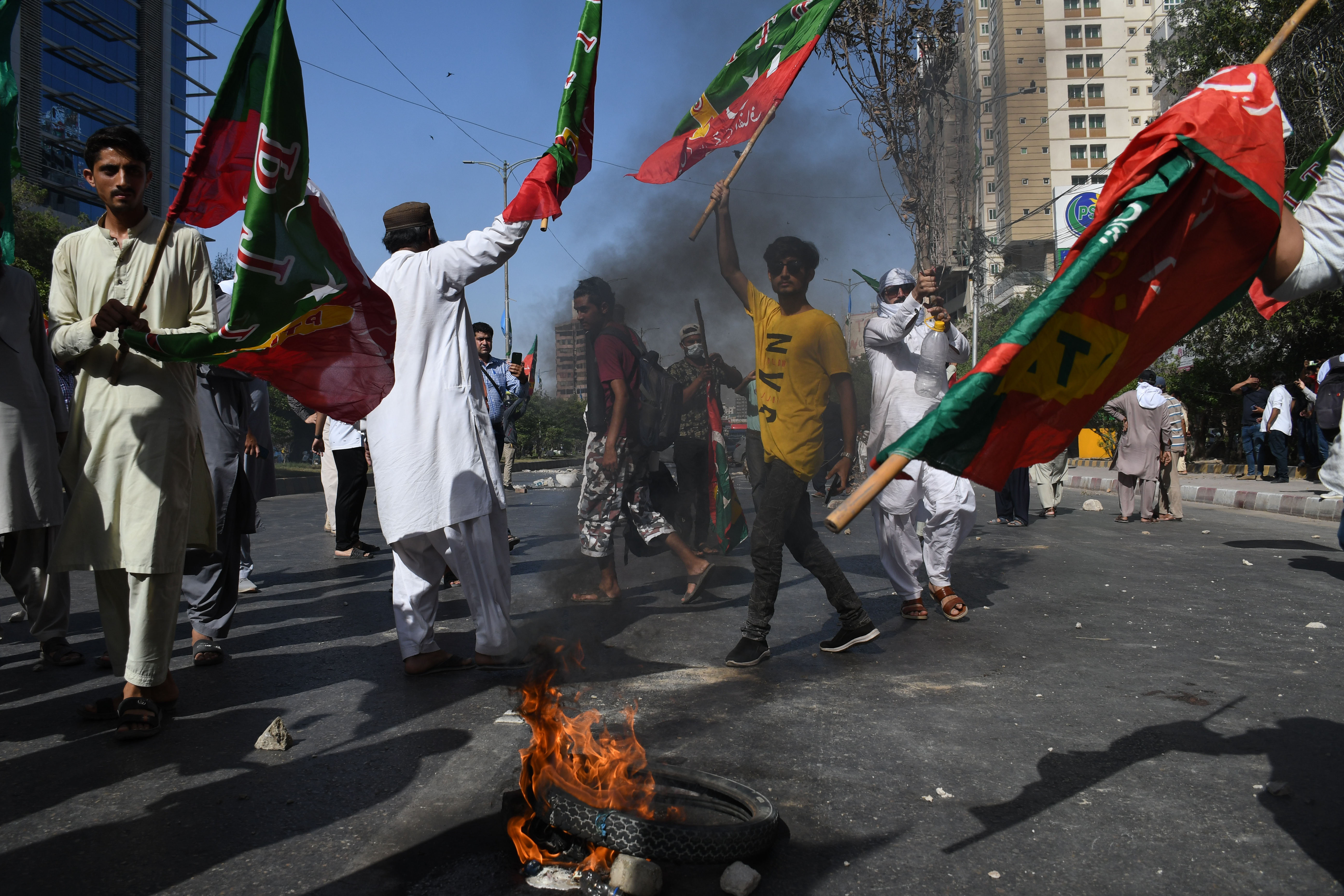
The Pakistani military has vowed to punish the “planners and masterminds” of the violence that erupted last month after former Prime Minister Imran Khan’s brief arrest in a corruption case led to widespread unrest.
After a meeting of its top brass in Rawalpindi on Wednesday, the military said it was determined to bring people who attacked military installations and monuments to justice.
It also denied allegations of human rights abuses after Khan’s Pakistan Tehreek-e-Insaf (PTI) party said some of its members were tortured and physically abused in custody.
“In this regard, efforts to create distortions and attempts to take refuge behind imaginary and mirage human rights violations to create smoke screen for hiding the ugly faces of all involved, are absolutely futile,” it said in a statement.
“It is time that noose of law is also tightened around the planners and masterminds who mounted the hate ripened and politically driven rebellion against the state and state institutions to achieve their nefarious design of creating chaos in the country,” the military added in its statement.

After Khan was arrested on the premises of an Islamabad court on May 9, thousands of the former prime minister’s supporters took to the streets around the country.
Police and government buildings, as well as military assets and installations, were attacked in the unrest. The government has blamed Khan’s supporters for the violence but the former prime minister has denied the accusations and has called for an independent inquiry.
In the wake of the violence, thousands of PTI supporters, top leaders, as well as journalists, were detained. More than 80 senior members of PTI have quit the party in recent weeks.
Khan, a 70-year-old former cricketer, has consistently denied accusations of corruption, saying the charges are a politically motivated attempt to keep him from running in elections scheduled for later this year.
In a statement issued last week, New York-based Human Rights Watch (HRW) urged the government not to try civilians in military courts, adding the practice violated the country’s obligations under international law.
Dozens of people have been handed over to the military for upcoming trials related to the violence last month.
Separately on Wednesday, police in Pakistan named Khan for abetting the murder of a lawyer in Quetta, the capital of Balochistan province.
Since his removal from power last year, more than 100 cases, including incitement to violence and “terrorism”, have been brought against Khan.
According to Arif Rafiq, a political risk adviser on South Asia, the army statement was indicative that the military was “making it clear that it seeks an end to Khan’s political career and his party as we know it, by any means necessary”.
“It is also signaling that it will not allow any other forces, including the judiciary, to stand in its way,” he told Al Jazeera.
“The Quetta murder case and the language used in this statement indicate the army is shaping the ground for Khan to be potentially tried in cases in which the punishment could be death,” he added.







